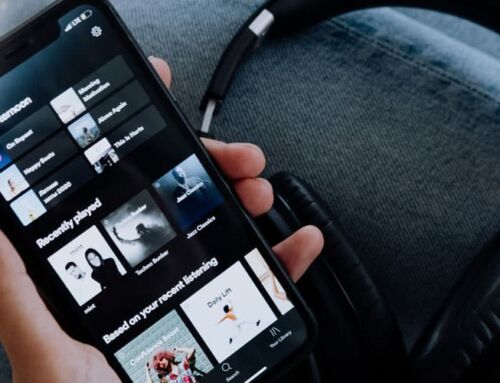Whether you love them or hate them, record labels are still a vital piece of the music industry landscape.
Regardless if you are a local band on a small independent record label, a major artist on a major record label, or even a small or major artist who is either no longer with a label or doesn’t plan to pursue a label, it’s important to understand their involvement in the big picture of the music community so you can interact and coexist with them in any way that may involve your own music career.
Sure, record labels still play a large role in shaping artists’ careers and being able to deliver music to larger audiences. But I see that many artists still ask the age-old question: what does a record label do? And are they still relevant in the digital age?
RECORD LABELS:
Record Labels Do Talent Discovery & Development (Or Do They?)
I’ll start by saying that this category may not be as relevant as it once was. With the dawn of the Internet and the new Direct-To-Fan model it makes possible, record labels seem to have either completely stopped actively searching and talent scouting or have narrowed their search to only those artists who have been able to build a fanbase and community via their own channels.
There was a time in the industry when record labels were very active as talent scouts: attending concerts, listening to demos, and actively searching for promising new acts they could take a chance on. This team of talent scouts are (were?) known as the A&R (Artists and Repertoire) department, and they identify potential stars, sign them to the label, and guide the development of their unique sound and image.
As I mentioned earlier, this talent scouting seems to have narrowed down to just offering deals to artists who have already built a brand and community online with their music and influence. From my perspective, this seems to have all but made “artist development” as a category or profession extinct.
This form of talent scouting does beg a very serious question for DIY artists: if you’ve already built your brand and music, and have an influence over a community of 10,000 fans or more, why would you essentially give that up to get signed?
The only reason that I can see an artist would want to sign a deal with a label at this point is due to the promise of reaching a larger audience, which may be fine. But the fact that you’ve already done the work of building a huge community is going to pay off a lot quicker than if you were to sign with a label.
Why?
Because it’s said that only 1% of signed artists actually get any love or marketing resources from the record label. Yes, you read that right.
That means most record deals are as dormant as if you were still unsigned.
And to make that shiny new “dormant” record deal even worse, you’ve now committed yourself to owe the label the majority of your revenue/profit, plus they technically own a majority of your masters. Now you’ve gone from 100% successful to 15% successful and thrown yourself into a financial crisis that you can’t escape from until the contract obligations are met.
And guess what? Even after you’ve paid your dues to the label, they still technically own your music. It’s like paying off your mortgage and the bank still owns your house. Double, er, Triple whammy.
So if you are an influencer artist who already built their audience and is currently reaping 100% of your revenue and growing, what’s the real value of being signed again?
One last thing: an Artist Engagement Manager on LinkedIn recently posted that artists and managers need to take the lead to promote their releases, always assuming the label won’t help. So if you are going to do the work to promote the music, market yourself, and build your brand, do we just assume a record label is essentially useless?
RECOMMENDED ALTERNATIVE: If you are going to have a music career, OWN your music career. 100%. Stay self-employed and you will reap the benefits long-term.
Record Labels Oversee the Music Production Process (Or Do They?)
One of the most important things a record label does (or did?) is to oversee your music production process.
From selecting the right songs for an album to recording, mixing, and mastering, record labels hire the right engineers, producers, and session musicians to make sure the sound quality is ready for distribution.
Yep, time for me to chime in again.
Sure, I can see the value in the record label being involved in the music production process when it comes to funding a project, as this is where a lot of artists tend to come up short when they are attempting to lock in high-quality recordings on a shoestring budget. But this level of label involvement only happens when you’ve signed that “happy little agreement” (sorry Bob Ross).
But with when you add up the variables in today’s market, the case for the record label’s involvement shrinks dramatically:
- home recording studio options
- self-funding platforms for artists
- crowdfunding opportunities for artists
- a shift away from albums
- remote collaboration tools
- the desire for authentic (not perfect) art recordings
- engineers who are available as independent contractors
I’m not saying this “value stack” is an exact replacement for the high-quality music production. It does still exist, but just like the Apple iPhone has closed the gap between budget and professional DSLR cameras, the options for self-recording success will continue to close the gap on serious studio projects.
RECOMMENDED ALTERNATIVE: Just like any creative process when creating content for today’s consumer platforms, the first step is to just start. Film yourself playing your songs for YouTube, make Shorts and Reels, and play those socially “live” and in-person shows first. Building a fanbase through performances, interactions, and relationship-building will help you get those early fans. Once you have enough, invite them to take the journey with you to record your first tracks, allowing them to financially and emotionally contribute to your project. That’s just the starting point, and you can always be creative with where you go from there.
Record Labels Market and Promote Your Music (Or Do They?)
With so much music being produced and promoted on a daily basis, getting noticed and gaining any kind of momentum can be a real challenge for most artists.
For decades, it has been part of the record labels’ duties to dedicate their own marketing and promotional teams to create buzz and awareness for the artists and music they sign. Tactics they may help with include designing artwork, executing marketing campaigns, creating promotional materials, securing radio airplay, playlist placement, music publication coverage, interviews, and public appearances, and developing strategies to maximize an artist’s reach and visibility.
While labels do have some advantages with being able to utilize their industry networks and existing partnerships, this shouldn’t deter someone from building their own networks. Any artist’s career can be greatly influenced by the size of their network, as who you know can be more impactful than lucky breaks or even the quality of their music.
But here again, it comes down to a level of control: would you be ok with having access to someone’s network at the expense of losing creative control or sacrificing the integrity of your art? Or would you rather maintain the integrity and dignity of your mission and build your own network that would eventually get you in a similar place? Sure the latter will take longer, but since you’re going in the same “music career” direction either way, it really comes down to how much you value your creativity and ownership over everything you’ve worked so hard to create.
Last but not least, marketing for musicians is basically a required skill to have either way. Whether you are on a label or flying solo, you will have to do a lot of the marketing yourself. Just because you are on a label doesn’t mean they have to promote you, so be prepared and assume you will be doing your share of campaigns, because you can’t rely on the marketing teams to prioritize your music over someone else’s.
RECOMMENDED ALTERNATIVE: Become your own marketing guru and educate yourself on how to be a good marketer in both music and other industries. It’s a transferrable skill that will help you understand what is required to make every future release a bigger success than the last.
Record Labels Distribute Your Music (Or Do They?)
Once your music is ready to be released to your fans and the world, record labels are responsible for the distribution process. They collaborate with distribution companies or their own distribution divisions to ensure the music reaches a global audience. This process involves getting the music onto digital platforms, such as Spotify and Apple Music, as well as physical formats like CDs and vinyl records.
While not as prominent as it once was, record labels still oversee the logistics of getting the music to physical retailers as well, ensuring it’s in stock and well-promoted. Distribution is crucial to ensuring that fans can easily access their favorite artists’ music.
But in today’s predominantly digital landscape (with a few vinyl, CD, and tape releases for nostalgic music collectors), almost every music artist on the planet is now 100% capable of distributing their own music via a DSP (digital service provider). The biggest decision for an artist these days is which distributor to use based on their genre, percentage the DSP takes or the payment that is required, and any terms the artist needs to be aware of.
RECOMMENDED ALTERNATIVE: Distribute your own music and get familiar with the process. The knowledge and skills to self-serve will be more valuable to your career going forward.
Record Labels Provide Financial and Legal Support (Or Do They?)
The music industry can be littered with legal and financial complexities, and it has been said that record labels can be valuable when providing support in these scarier areas of an artist’s career.
Through the years, labels have been known to negotiate contracts, such as record deals, publishing agreements, and licensing agreements. Labels can also help artists secure their rights to their music and manage royalty collection and distribution.
Additionally, common knowledge, fact or fiction, is that record labels offer financial support in a variety of ways, such as providing artists with advances to cover recording costs, living expenses, and other professional career needs. The story up to this point has been that this support from labels allows artists to focus on their music without the burden of financial stress.
I’m going to start with legal, because that’s one area that might be helpful to artists. Legal is in a league of its own, whether its music related or another industry. I would highly advise an artist to seek some level of outside legal counsel. That’s all I will say about legal.
BUT, financial is a huge thorn in my side. With the amount of independent AND major label artists complaining publicly for years about the financial trap labels are, it’s no surprise that this is an area I would highly advise keeping fully control over. Sure it may take longer, but it will be safer and healthier for you long term.
Those “generous advances” are basically loans that will put and keep you in debt. Even if this isn’t the label’s intent, you will be in financial handcuffs for the duration of your record deal, and maybe even beyond (see my note about paying off your mortgage and still not owning the house above).
Having knowledge or third-party help that represents you the artist, not the other party, in regards to publishing, licensing and other contractual negotiations is also advised, as it will protect you and your music.
RECOMMENDED ALTERNATIVE: Seek outside help for legal and financial support, and educate yourself on what you can. Ignorance in this department can cost you dearly. The more you can keep in-house, the safer your music and your career will be. Also, consider less risky funding options, such as your day job, crowdfunding, The Music Fund, or beatBread, to help you support your music career with no strings attached.
Record Labels Build Your Brand and Image (Or Do They?)
Creating and maintaining a unique brand and image is essential for an artist’s long-term success.
If you are among the artists on a label’s roster that they are putting their resources behind, a record label will work closely with you to develop and refine your branding. This includes creating logos, color schemes, and other visual elements that cultivate emotions and lasting impressions with their target audience.
A strong and consistent brand helps artists build relationships with their fans, making them more memorable and marketable in the competitive music landscape.
Creating a brand that helps you stand out among a sea of other music and artists is undoubtedly important, and it’s also something you can easily do on your own.
In today’s creator economy, everyone starts from square one. You may start with a subpar logo and design elements, but over time those will evolve and get better. There’s nothing wrong with imperfection, especially since you are going to know what your audience wants. Producing art that represents you personally means you’ll attract fans who like the same kinds of things and music that you do.
If you’re creating music for a culture and crowd you’re already a part of and identify with, you should be a semi-expert already in knowing what kind of brand you are going for. The only variable is that it will change and grow over time alongside you and your music.
RECOMMENDED ALTERNATIVE: Start with a small brand and image that is truly you. If you aren’t good with graphics or design elements, consider hiring a freelance designer to help you get something started. This isn’t a heavy lift if you are just starting out, and you can always improve it when you have the growth and revenue to support it.
Record Labels Manage Your Touring and Live Performances (Or Do They?)
Touring is a major source of income for many artists, and in the right situations, record labels typically can play a vital role in managing their live performances. This can include securing tour dates, managing logistics, providing creative support for engaging shows, offering access to production and stage design resources, and handling tour finances and paperwork.
But realistically, this level of involvement is best suited for any major superstar. For touring on the local and regional levels, it’s very feasible to handle this yourself or hire a contractor or virtual assistant to help with booking dates, managing your tour route (logistics), designing the show itself, and finding other bands to play with. Doing it yourself can also ensure you provide creative direction that is true to you and your brand.
RECOMMENDED ALTERNATIVE: Start small and grow naturally. This can be very manageable if you design tours that equal the size of your music empire. If you only attract 10-20 people per show, tour regional coffee shops or smaller venues that cater to your genre. If you attract 50-200 per show, consider what resources you need to help support where you’re at. No one needs a label to drive their touring machine, especially at the beginning.
Record Labels Help With Career Strategy (Or Do They?)
Record labels are known to work closely with artists to develop a long-term career strategy, including plans for album releases, singles, and tours, identifying potential collaborations, and marketing opportunities. They can also help artists navigate the evolving musical landscape and make decisions about their music direction and branding.
Ironically, this one made me laugh a little. In the modern music industry, where younger artists may be more in tune with the trends, technologies, and landscape changes than the old-school label teams, I get the sense that artists now have the advantage to plot their own release schedules, marketing campaigns, and tours.
If you spend a lot of your time networking with industry contacts and other artists, you can probably identify potential collaborations and marketing opportunities just as effectively as a label. If you put in the work, already have a fan base, learn some basic business skills, and are a personable human being that people like and can relate to, you have all the ingredients to build your own success. It’s really a 50/50 chance that the labels will accelerate that path, so stay true to you and make the best decisions for your own career.
If you really need help, consult a Music Career Success Specialist or any mentor or individual who you trust that you can use as a sounding board. Sometimes the only way forward is to get it out of your own head and give it to someone else. They’ll more than likely present it back to you in a way you’ve never thought of before.
RECOMMENDED ALTERNATIVE: Have the confidence, humility, and perseverance to go it alone and seek the help you need from trusted mentors or peers. I might advise to avoid advice from friends or family as their intentions and support for your career may differ from what you need professionally. But I have a lot of confidence in you already. I know you can do this and will ask for help as you see fit.
Record Labels Help With Market Research (Or Do They?)
While investing heavily in market research to understand industry trends and consumer preferences can still be important for superstars, DIY artists don’t need to think quite as big.
Yes it’s important to understand your audience and what they are into, and that can be done through online data, social media groups, and other places your fans already use and hang out. If you already have a fan mailing list, you can just email them and use them as your own research group.
Ask them what they like, if some new songs you’re working on appeal to them, and make them feel like a part of the process. If they feel like you value them enough to bring them along to be a part of your career growth, they will naturally introduce your music to their friends and attract others like them. That fan base will continue to help you in a cyclical way as you grow. Ask-Rinse-Repeat.
RECOMMENDED ALTERNATIVE: Definitely know your audience. If you already have fans and they are the right kind, learn more about them to find out what they like, where they hang out, and where you can find more people like them. If you are just starting out, use your open mic or early live show experience to meet the people in the audience and find out what they liked and didn’t like about your music. You can easily build your own profile, criteria and data points to help you find and attract more of the same types of people to your fan community.
Record Labels Provide You Access to Their Global Network (Or Do They?)
This one touches on some of the earlier points under “Marketing & Promoting Your Music”. Record labels do have a large network they can tap into, but if you do your own networking, you can succeed on your own. Sure you might achieve greater levels of fame and success quicker with a label’s network, but it does come at a hefty price tag on your career.
Think about all the outlets you may want to build networks in, including booking agents, music promoters, radio program directors, playlist curators, music supervisors for film and TV, and more. The only difference between your network and the label’s network is your speed of growth. If you can be patient and enjoy the journey, the rewards can be much greater on your own.
RECOMMENDED ALTERNATIVE: Network like you’ve never networked before. By this I don’t necessarily mean contact every person you can and share the career-killing link to “check out my music”. It would be better for you and your career to network through simple introductions that share who you are and then immediately focus on the person you are contacting. Make every introduction about them. That will get them to talk about themselves and allow you to learn and listen. Self-promotion can be the death of your career before it even begins, so ensure you are connecting on a human level before you connect on an emerging artist level. People talk to people, so be social, friendly, and human.
So, Is a Record Label The Route You Want To Take?
Honestly, trying to attract the attention of any record label is going to be the exact same journey as if you were to stay DIY forever. The only difference is the “Yes” or “No” that you decide when a label finally does notice you and wants you to sign on the dotted line.
Record labels can be your best friend and your worst enemy. Ultimately if you aren’t in any rush and want to pursue your art for all the right reasons, listen to your gut, be confident, and have the patience to pursue it on your own while enjoying the journey.
You will get to learn a lot of new things, meet a lot of new people, and build a community of fans and fellow artists who want to support you. Work at your craft, be an inspiration to others and share your passion with the world. There’s no better person or business in the world than you who can do that.

Stop Feeling Isolated & Let’s Build Your Music Career Together
Are you a serious career musician looking for help from real industry humans?
Are you fed up with the lack of help from the many online music cliques?
Join Career Musicians Made Simple today and gain access to:
- Music Career Success Specialists who truly care about your success
- A community of musicians helping each other overcome similar struggles
- Guides and frameworks that give you tangible results when applied properly
- Special live events that let you ask questions and get focused attention



